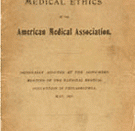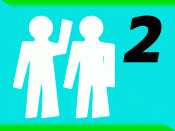Over the last few years, the ethics of human cloning has become a great issue. Supporters for both sides have valid reasons to clone or not to clone. When speaking of human cloning, each side has their own definition. To be more specific, The American Medical Association defines cloning as "the production of genetically identical organisms via somatic cell nuclear transfer"ÃÂ In other words, cloning is done by taking the cell, removing the nucleus, which contains the DNA, then taking the DNA from an adult cell and inserting it into the egg. Cloning does not produce an exact copy of the person being cloned, it copies the DNA of the person and creates a duplicate genetically. There are a great number of possible medical benefits and disadvantages to Cloning. Supporters believe couples would now be able to produce children, people waiting for organ transplants or bone marrow would have better chances, since we would be able to clone the persons DNA, A huge plus for cloning supporters is researchers would be able to study cell differentiation, which would enable cures for spinal cord injuries, cancer or even Alzheimer's.
Without looking at the scientific side, the moral and ethical issues are the governments top priority. People speculate cloning would get out of hand. That a black market would arise for the rich, that cloning would create "second class"ÃÂ citizens, and the unknown effects could hurt society. Both sides have strong points, yet is America ready to face a decision.
One of the main goals of our government is to protect human life.
Yet if cloning is allowed, many lives are in danger. To clone for reasons such as research, organs and cell tissues are unethical. The American Medical Association holds four reasons why not to clone. First, there are...


